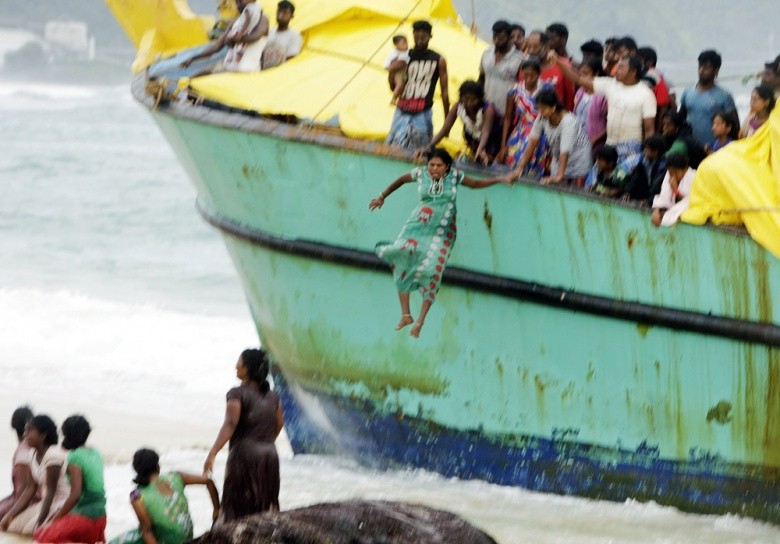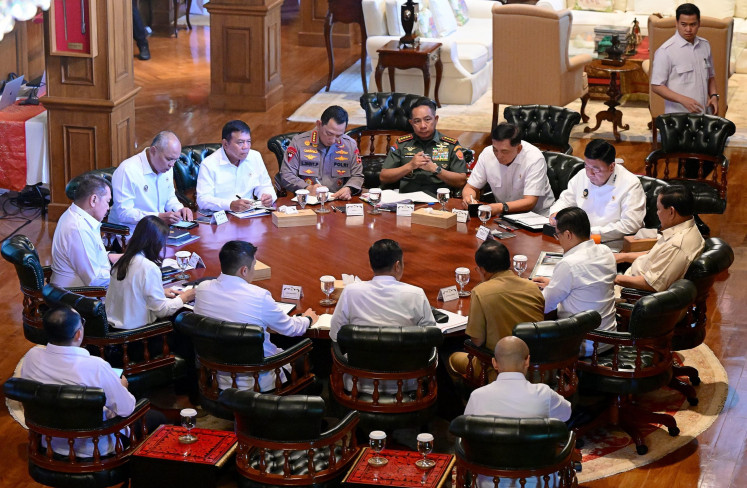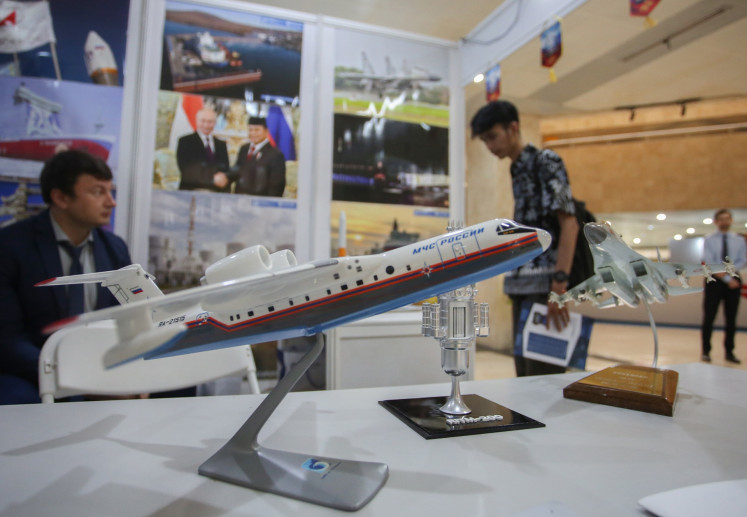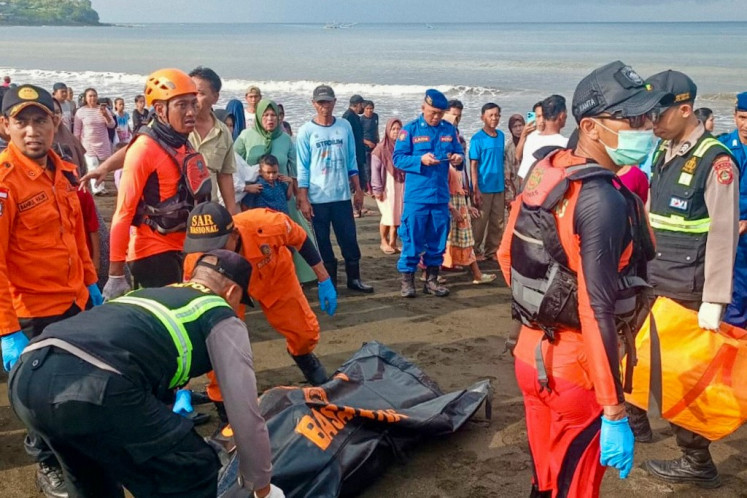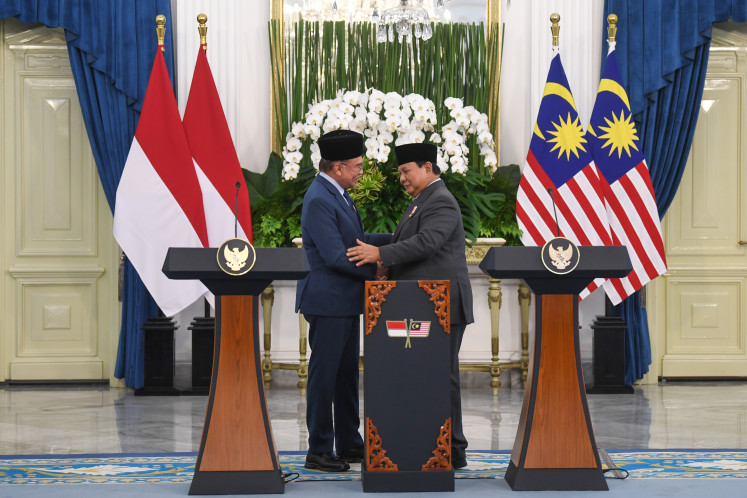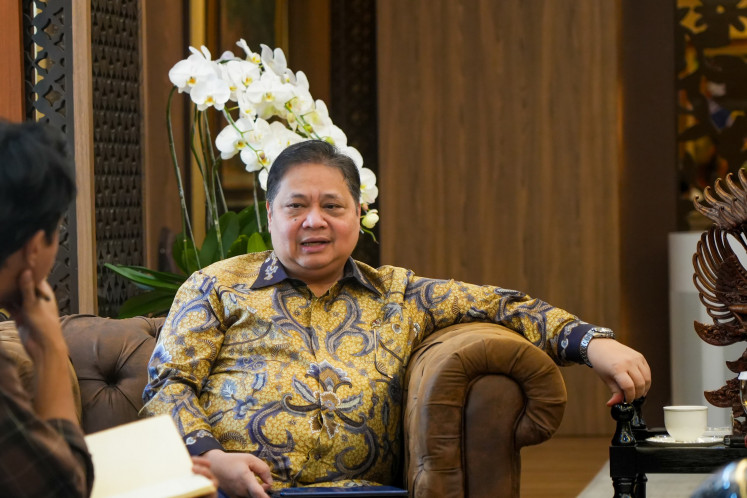Popular Reads
Top Results
Can't find what you're looking for?
View all search resultsPopular Reads
Top Results
Can't find what you're looking for?
View all search resultsEmpowering refugees as a potential asset to Indonesia
Currently, Indonesia is temporarily hosting about 14,000 refugees who are waiting for resettlement to countries that signed the 1951 UN Refugee Convention.
Change text size
Gift Premium Articles
to Anyone
T
he word "refugee" invokes a mélange of unwelcoming images: a teeming boat adrift off the coast of Libya, a bloated child in Afghanistan, slums reduced to rubble in Bangladesh. Displacement, due to ethnic, religious or political violence has been a never-ending reality for generations of refugees and is a phenomenon perilously intensifying day by day.
With the United States' assassination of Iranian army general Qassim Soleimani, the world has entered into another ugly cycle of war-terror-dehumanization. The American invasions, Iran-Saudi conflict, militias and terrorist groups have all played a significant role in creating the largest refugee crisis since World War II
Witnessing yet again divisive, oppressive forces that give rise to victims of conflict, I realize that the refugee crisis is one of solidarity, testing our humanity's collective conscience.
Currently, Indonesia is temporarily hosting about 14,000 refugees who are waiting for resettlement to countries that signed the 1951 UN Refugee Convention. Although much effort has been made by various countries across the globe, the last few years have seen a sharp decline in support of refugees.
Politicians aren't just closing their borders to refugees through immigration policy reform, but also reducing their contributions toward refugee protection programs. The "Our Country is FULL!" statement US President Donald Trump tweeted in April has had ripple effects on leaders across the globe. The UNHCR reportedly failed to meet its budget by US$3 billion every year since 2016.
Our neighbor Australia did not merely push back refugee boats reaching its shores but implemented budget cuts for refugee aid in Indonesia and introduced a tougher policy for resettlement in their country. From 14,000 refugees in Indonesia, only hundreds were resettled.
Although worldwide compassion toward alleviating the plight of these individuals has decreased, it is with the belief that as long as there are those who care, I have confidence refugee protection can still ensue. The reason is that 2019 gave us Greta Thunberg, who proves to us all that "no one is too small to make a difference and change the world”.
Through Indonesia for Refugees (IFR), my team and I empower refugees through vocational training and education programs. As we pull down the machine lever to form a bar of soap, soap making became an opportunity to restore their spirit. By selling these handmade products, the refugees and I strive toward socioeconomic inclusivity for displaced communities worldwide.
For the refugees, the IFR's programs serve as ways to spend their time more productively and equipping themselves with skills that might be useful in their new home. However, behind the facade, they are stuck in a limbo, settling here and there, routinely living without knowing where they will be brought next, uncertain of their future.
The government has shown a commitment to protecting these refugees. Since the Indochina crisis in 1975, the government has followed the non-refoulement principle, which means refugees would not be forced to return to their place of origin where their lives would be threatened. Indonesia even built temporary housing in Batam, Riau Islands, for around 100,000 Vietnamese refugees.
President Joko “Jokowi” Widodo took the humanitarian step against political popularity to sign Presidential Decree No. 125/2016 on the treatment of refugees from abroad. This decree provides legal certainty and standard procedures on coordination and effective collaboration among the mandated government agencies when dealing with refugees. Furthermore, this ensures their basic human rights, such as access to education through public schools or other informal programs.
Despite the progress, much still needs to be done regarding the refugees' inalienable rights. As a starting point, Indonesia should consider participating in the 1951 UN Refugee Convention. This will certainly take time and resources, but Indonesia now has better financial resources and political capital than before.
Perception matters. The illustration of refugees is one of burden. This is one of the predominant reasons why lots of countries are unwilling to take in refugees. But these appearances are deceptive. For these countries that do take in refugees, they find many optimistic results.
While the US leans on a hostile approach to refugees and migrants for political aims, a study by international think tank OPEN demonstrated that refugees actually contribute to the economy. OPEN found that for every US dollar a government spends on refugees, there is a return of US$2 in the economy within five years.
This study drew on the US example of Vietnamese refugees from the 1970s, tracing their employment rates and average income over the years. In this case, public investment in these refugees led to increased labor supply in otherwise unskilled fields in the short run and job creation from entrepreneurship in the long run.
I strongly encourage the Indonesian government and citizens to take into consideration these similar studies.
If signing the 1951 Refugee Convention takes longer to decide, the next viable alternative would be the state allowing refugees to work in the formal sector and give them access to formal financial services, from microfinancing loans to freelance work permits. Both will enable the government to track the impact of refugees on the Indonesian socioeconomic sphere in comparison to leaving them in informal job sectors, which further burdens the government.
To offer personal insight, my internship at Forbes Indonesia showed me lists of the upper echelon of Indonesians. It turns out, some of those individuals in the private sector are also second or third-generation migrants that came to Indonesia in the hope of a more prosperous life.
Now, other than creating wealth for their families, they have generated jobs for many and play a significant role in the country's economy. The same chance to build a future should also be fairly given to refugees.
Their undying willpower to find a new home is what fuels my spirit to fight for refugee rights. Indonesia is a country with a conscience. We have long believed that humanitarian concerns must be a part of our foreign policy, not a departure from it. We must act with an amplified sense of our humanity as opposed to a belief in barriers and barbed wire.
The refugees have taught me that progress is always possible because small steps lead to big changes.
***
Student at Pelita Harapan School Kemang Village, chief editor of a student-run magazine and Indonesia for Refugee manager.

